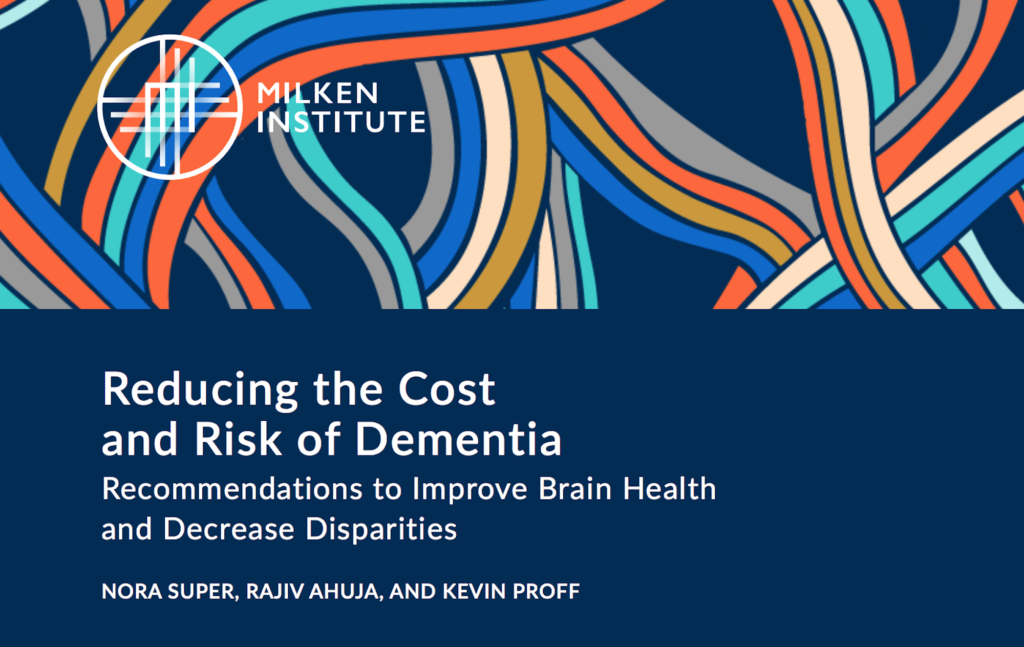
to Improve Brain Health and Decrease Disparities.”
Building a “dementia-capable” workforce across the care continuum is one of five recommendations that could change the trajectory of the disease, which could affect 13 million people and lead to an economic burden of more than $2 trillion over the next 20 years, according to a report released Tuesday by the Milken Institute.
“Reducing the Cost and Risk of Dementia: Recommendations to Improve Brain Health and Decrease Disparities” contains recommendations for policymakers, businesses and communities.
A dementia-capable workforce can be built in part, authors Nora Super, Rajiv Ahuja and Kevin Proff said, by:
- Reauthorizing and increasing funding for the Geriatrics Workforce Enhancement Program to improve health outcomes for older adults by developing a healthcare workforce that maximizes patient and family engagement and integrates geriatrics with primary care.
- Spreading so-called Age-Friendly Health Systems for older adults with dementia, which use information-sharing and coordination across care settings to reduce unnecessary costs and inefficient care.
- Developing and training workers to provide high-quality care to people living with dementia. “To attract and retain this workforce, we need to ensure these jobs are of high quality and well paid,” the authors said. “We must also ensure direct care workers, including personal care aides, home care aides, and certified nursing aides, have access to dementia-specific training.”
- Increasing the cultural competency of the existing dementia workforce to ensure that they provide culturally sensitive care, services and research opportunities to high-risk populations.
- Providing paid and unpaid caregivers with the tools, information resource centers and training to meet the challenges of caring for people living with dementia.
- Testing new payment and delivery models to provide comprehensive, coordinated and person-centered care for people living with dementia and provide services in the home and out of more costly settings of care, where possible. “The Affordable Care Act created the Center for Medicare & Medicaid Innovation (CMMI) to develop and test new payment and delivery models for providing value-based care to Medicare and Medicaid beneficiaries. While several models are designed to improve care for a host of chronic conditions, new models specific to dementia care do not exist,” the authors said. “We could fill this gap through a CMMI demonstration project aimed at Medicare beneficiaries with dementia who need progressive interventions to avert or delay institutional care and enrollment into Medicaid. Implementing new dementia care models across settings, coupled with new Medicare billing codes and increased opportunities for Medicare Advantage plans to treat people with dementia, will help deliver cost-effective, coordinated and high-quality care.”
Other recommendations in the report:
- Promote strategies to maintain and improve brain health for all ages, genders and across diverse populations.
- Increase access to cognitive testing and early diagnosis.
- Increase opportunities for diverse participation in research and prioritize funding to address health disparities.
- Establish services and policies that promote supportive communities and workplaces for people with dementia and their caregivers.
The report was produced in collaboration with UsAgainstAlzheimer’s, AARP and Bank of America. The full report, along with new data and recommendations, is available online at https://milkeninstitute.org/reports/reducing-cost-and-risk-dementia.



